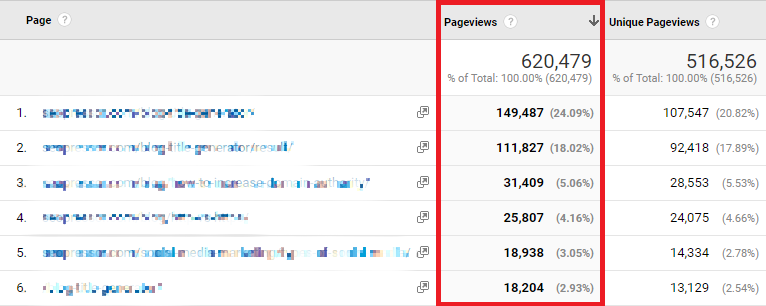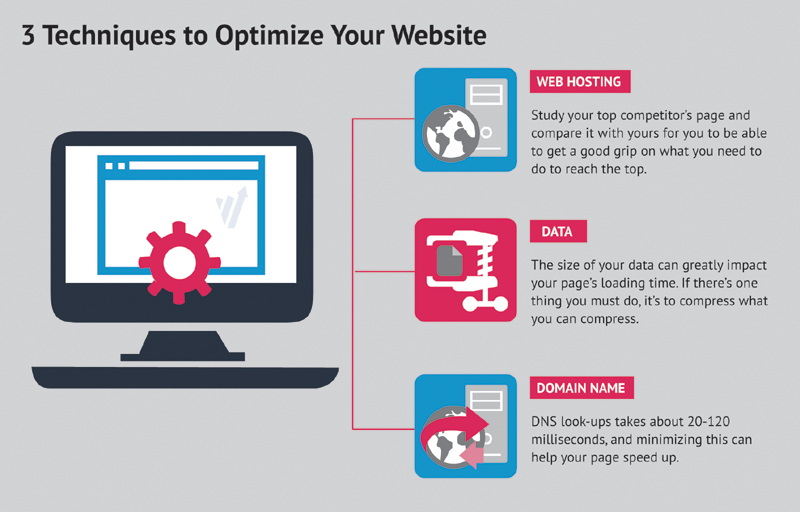How long does it take to rank on Google? Most sources claim that Google can take 3 to 6 months to rank your website. There are various factors Google has to consider before they can rank you higher.
Many new website owners often have one question stuck on their minds.
“How long does it take to rank on Google?”
To get a realistic answer to this question, one has to consider many different factors that affect your Google ranking duration.
How Long to Rank on Google?
There are various answers to how long does it take to rank on Google.
Most of these sources claim that Google can take three to six months and sometimes up to 12 months for Google to rank your website.
However, you have to understand that there are various factors that Google has to consider before they can rank your website higher on their SERP, aka search engine results pages.
Some of these factors may remain constant even if you use relevant keywords in your content.
Research done on top ranking pages found out that most pages take some time to rank higher on Google’s SERPs.
However, this compared differently from one website to the other.
The research showed that pages that ranked in the top ten were commonly 2+ years old.
So, how long does it take for a new website to rank on Google?
Even though your website may take some time to rank on Google’s SERPs, improving these factors could help you rank higher.
But what factors are we talking about, and how can you work on improving them?
Factors Affecting Google Rank Duration
1. Website performance

Website performance refers to the objective measurement of a website’s speed and user experience to determine its effectiveness in serving the creator’s goals.
A good website performance correlates directly to its overall effectiveness.
You’ll need to ask yourself various questions when trying to determine if a website’s performance is good.
You have to ask yourself if the website loads fast if the site contains encouraging feedback when it takes a long time to load, if the website’s scrolling and animations are smooth, etc.
If your website happens to have these challenges, you’ll need to take the necessary steps to ensure that you solve them to help users have a great experience using the website.
Just follow the tips below!
Reduce the overall load time

The load time is the amount of time your website takes to download onto the user’s computer.
Reducing this time could help reduce your bounce rate and increase the rate at which your users interact with your content.
Load time can be affected by latency, how many files there are, and how big they are.
You could reduce load time by reducing your files’ size as much as possible, minimizing the number of HTTP requests, and using cookies to preload your sites.
Make the site usable as quickly as possible
To achieve this, you’ll need to load your website’s most relevant assets first so that users can start using your website as soon as possible.
You could set your website to load the other files in the background or on an as-needed basis.
Add smoothness and interactivity
You’ll need to ask yourself if your website feels reliable and exciting to use.
It would be best to check whether the website’s scrolling feels smooth if the buttons are clickable, if the pop-ups open quickly and whether they animate smoothly.
We’ve not touched on all the challenges.
However, fixing these and other problems could improve your website’s UX.
An interactive, well-performing website is always guaranteed to rank you higher on Google’s SERPs.
2. Website age
Website age affects how much time it takes to rank a website.
New websites under six months old are often not ranked higher on Google’s SERPs since they are considered unreliable.
The more your website grows and ages, the better your chances of being ranked higher.
You may have the best content, filled with some of the most relevant keywords.
But, if you’re still new on the block, your website will still not rank higher.
This does not mean that Google doesn’t rank your website.
It is Google’s way of ensuring that you earn your spot.
This is unless you are in a completely new non-competitive niche that’s unexplored.
The conclusion is that older websites tend to rank higher than newer websites.
You may be asking yourself why this may be probably true.
If you look at our article on Google Sandbox, you’ll discover why Google may take some time to rank new websites higher, even if they have better content.

The reason is quite simple.
Creating websites is easy, and if everybody were just allowed to create websites, there would be an influx of useless, spam websites around.
To avoid this, Google “uses” the sandbox mechanism to ensure that you only get genuine websites that are relevant on your SERPs.

If you are creating a website and aren’t ranking yet, don’t worry.
Keep going!
3. Budget

Your budget can also dictate how long does it take to get on Google.
For instance, you’ve allocated a minimal portion of your investment to creating great content and optimizing your website’s SEO and user experience.
Chances are you’ll rank poorly compared to competitors in your niche.
Think of this situation as someone who’s into real estate.
You may buy or build a good house.
But, you may get any customers when you try to sell it.
Other factors may cause this, but the main question could be how much you spent on the renovations and how strategic your plan was.
You could use your budget to cover the technical aspect of creating your website and ensuring that everything runs smoothly.
The budget could also cover content writing, assuming you don’t have the time to create all the website content by yourself.
You could also invest some of the money budgeted for creating your website by creating social media accounts, paying for advertisements therein, and even hiring influencers to help boost your brand awareness.
Your budget allocation for creating your website does matter.
It would also be great to note that you’ll have to be very careful about the amount of cash you allocate to different aspects of your company.
4. User metrics

Google looks into certain metrics when ranking your content.
If your numbers are low in these metrics, Google won’t take much notice of it.
Analyzing these metrics could provide vital insights you could use to improve your website and rank higher, which you would have otherwise missed.
Some of these metrics include:
Pageviews

Page view is also called page impression and often abbreviated as PV.
It is a metric that determines how many times your users viewed a page on your website.
Ideally, the more page views your website has, the better chances you have of ranking higher on Google’s SERPs.
You could also use this metric to determine what your audience is interested in.
Creating content-based on what your users like is bound to help you rank higher since your content will be more relevant to your intended target audience.
Traffic

Racking up constant traffic on your website shows Google that your website may be gaining more authority in the niche and that users find your content relevant and helpful.
It would be best to improve and boost the amount of traffic you get to your website if you want to rank higher.
Bounce rate

Bounce rates refer to single-page sessions in which your users didn’t trigger other requests.
Your bounce rate, depending on your website’s intent, could be a good or bad thing.
However, most website creators would rather users spend more time on different pages on their websites.
You can check your bounce rate using Google Analytics.
If some of your web pages have a high bounce rate, which is different from what you expected, then you could analyze your pages to determine where the problem could be.
You could assess your marketing efforts, content structure, the website’s structure, etc.
Generally, your website’s bounce rate could be used as a factor that determines how high your website ranks on Google.
It would be best to keep your bounce rate below 40%.
If the bounce rate is below 20% or above 90%, there may be some issues with your tracking or a code installation error.
Learn how to reduce bounce rate here.
5. Links

Think of links as a way through which other websites can refer their audience to your website because you provide resourceful content that’s helpful to that audience.
When Google crawls your website and finds these links, it sees them as “votes” that help you come off as an authority in your niche when combined.
Therefore, the more high-quality links your website attracts, the higher you are likely to ranks on Google’s SERPs.
However, to get more links to your website, you have to create relevant content that your audience finds helpful.
You’ll need to do lots of in-depth research, come up with useful statistics that other websites in your niche can quote.
Earn your authority, get more links, and rank higher.
It would be best to create internal and external links in your website to boost your SEO to rank even higher.
The more high-quality external links your website has, the higher Google ranks you since it views your website as “big.”
You can click here to learn more about link-building.
6. Domain authority

According to its relevance in a particular niche, a website’s domain authority is ranked between 1-100 (with 100 being the highest domain authority).
It is a ranking score that measures how a website is likely to rank on SERPs and could help determine how good your website is doing.
Several factors are applied when calculating your domain authority, such as the number of websites linking to your website, the quality of those links, your content’s quality, popularity on social media, and your website’s SEO.
A website with fewer links may be considered spammy, which may reduce its domain authority.
You could improve your domain authority in several ways, such as improving your on-page and off-page SEO, working on your website’s technical aspect, making it mobile-friendly, etc.
The more you do this, the higher and faster you are likely to rank.
7. Competition

The final factor that may affect your ranking is a bit more serious, especially if you are a newbie in a highly competitive niche.
If some competitors rank high with high-value, targeted keywords, then the chances that you’ll rank high fast go down a notch or two.
So, how long does it take for a website to show up on Google with this much competition?
And what can you do to change that?
You could always find what keywords your competitors rank for and boost yourself up to the same playing field.
However, how exactly do you do that?
The answer is quite simple.
BiQ’s SEO suite is a writing and content creation tool used by content creators to create relevant, helpful, and optimized content for their audience in a simple, thorough, and effective manner.
BiQ’s Rank Intelligence
If you have a well-performing competitor and you wonder what keywords they may have used for their content, you don’t have to worry.
With BiQ’s Rank Intelligence, you could analyze your competitor’s content and get all the keywords they rank for.
All you’ll have to do is enter their URL in the feature and click “create.”
BiQ will present you with your competitor’s keyword ranking data, which you can sort out by setting your desired parameters.
You could sort them out to get the top 10 or top 100 ranking keywords, etc. you could then export the data in a CSV file to another program, e.g., Microsoft Excel.
You could make other keyword data for your website for easier comparison.
You could use this data to help you get more content ideas for your work and improve your SEO.
If both of you rank the same for similar keywords, you’ll need to search for more creative ideas on how you could improve your content’s keywords.
BiQ’s Content Intelligence
You could use BiQ’s Content Intelligence to create relevant content out of your competitors’ keywords.
Most people often go on to Google, type in the keyword, open several tabs and start writing.
This type of research can take some time.
BiQ’s Content Intelligence skips all that by analyzing the keyword’s top content in an instant.
It also breaks down your keyword regarding usage, examples in sentences.
Key in your keyword and start writing away!
You could switch to Word Vector in the Content Analysis tab and use it to get information on your website’s performance against other top ten performing websites in your niche with relation to your keyword.
You could check where your paragraphs need revision for irrelevant content.
You could then analyze how you can make them more relevant to your target keyword by using related keyword phrases.
Wrapping it up
So, how long does it take to rank on Google?
If you discover that your content hasn’t yet rank on Google, you shouldn’t worry since it can take some time before it does.
However, it would be best to create more relevant content in the process while you wait for Google to assess your website’s relevancy.
SEO strategy is built for a long-term game.




